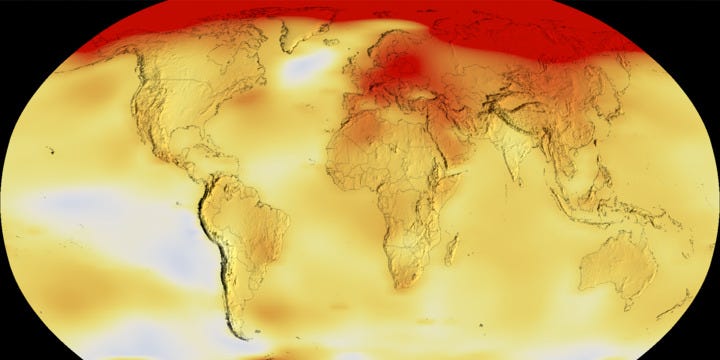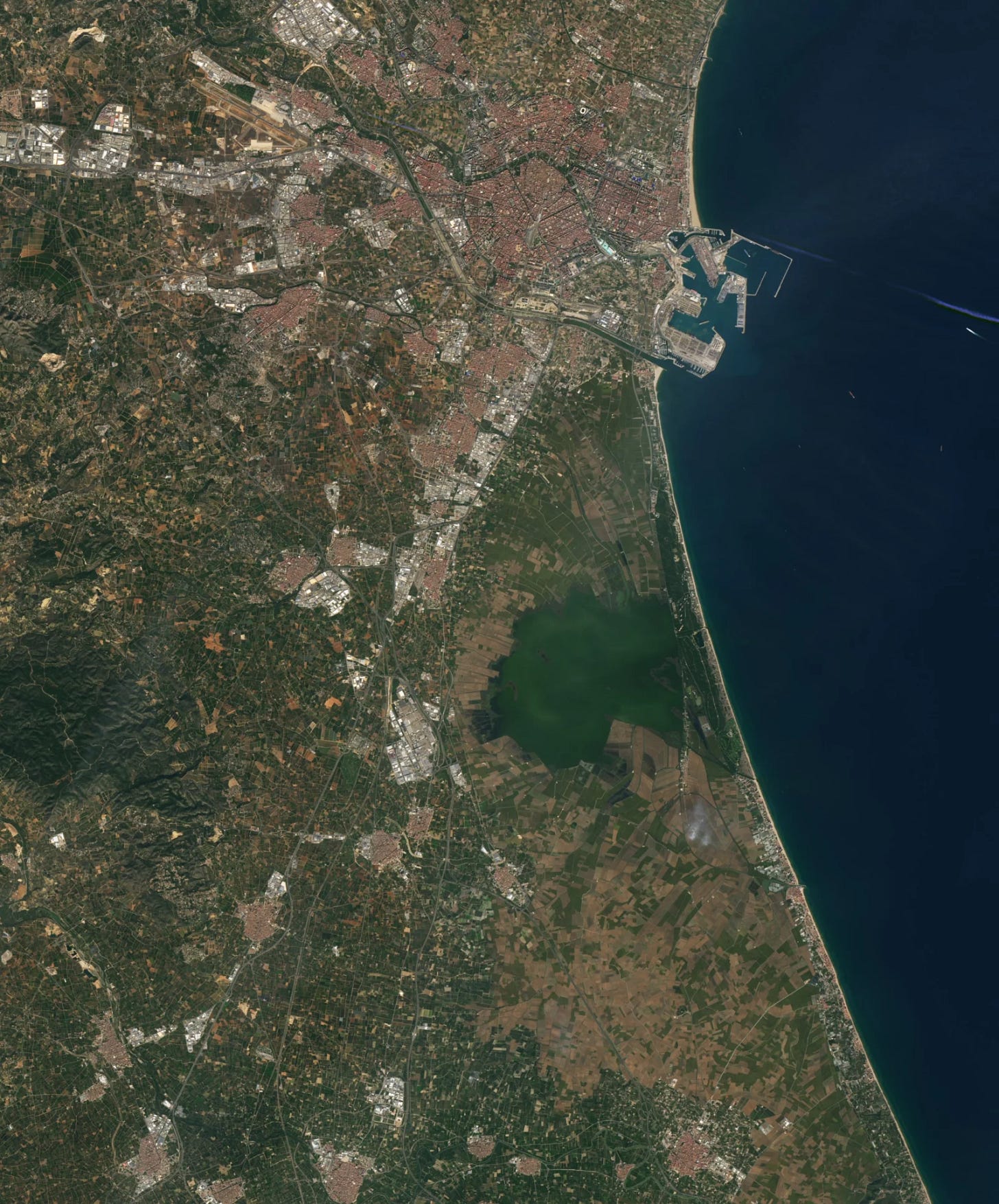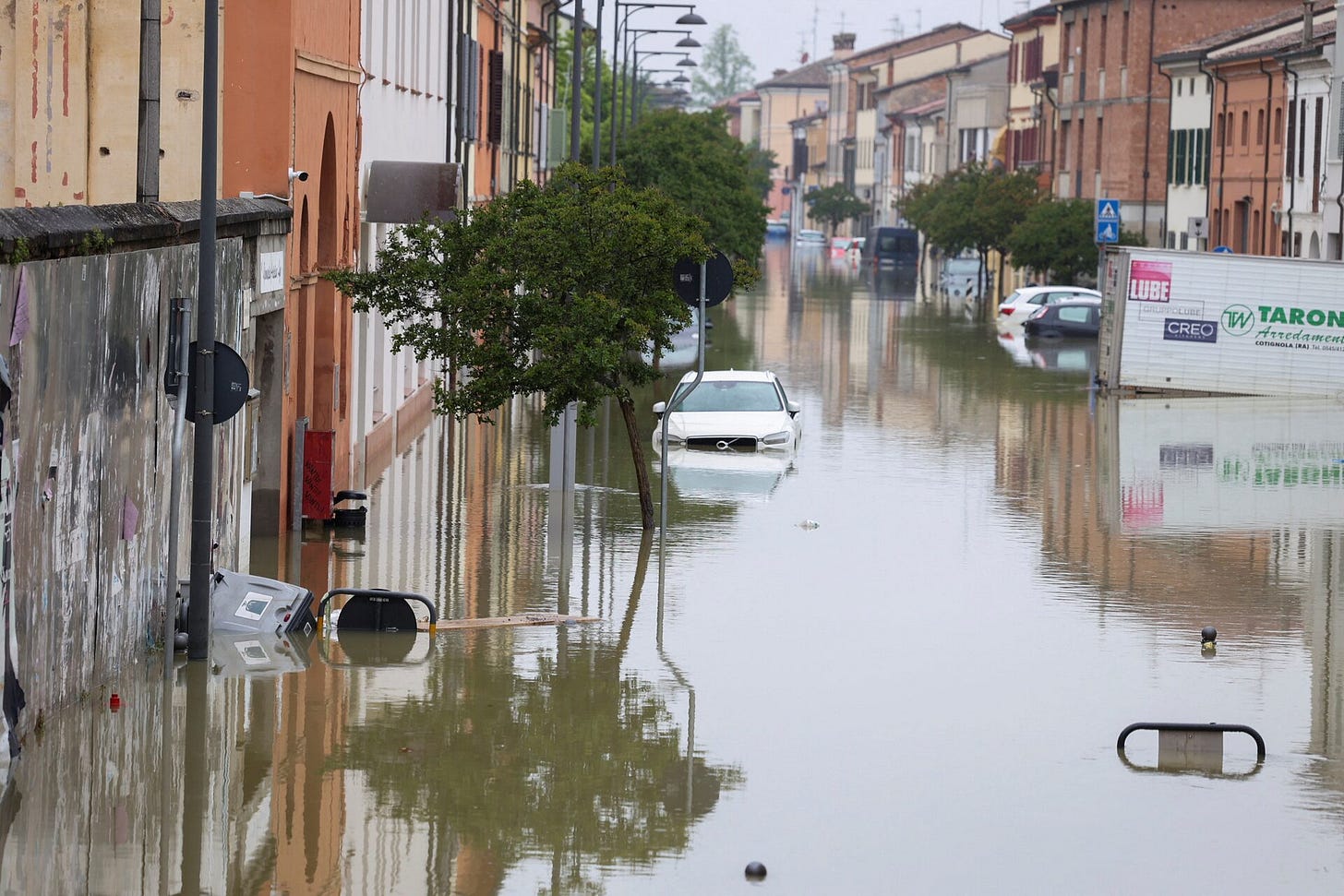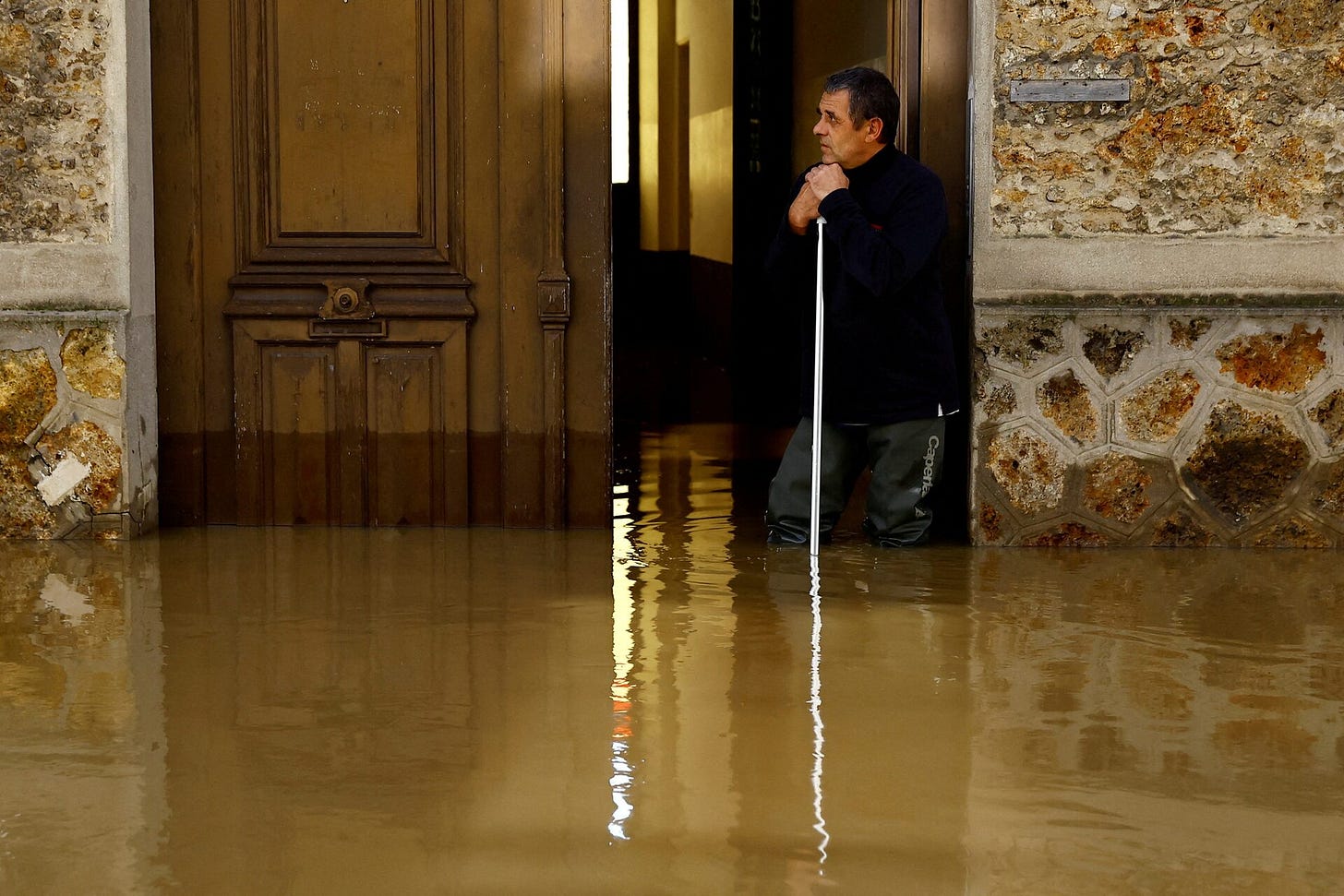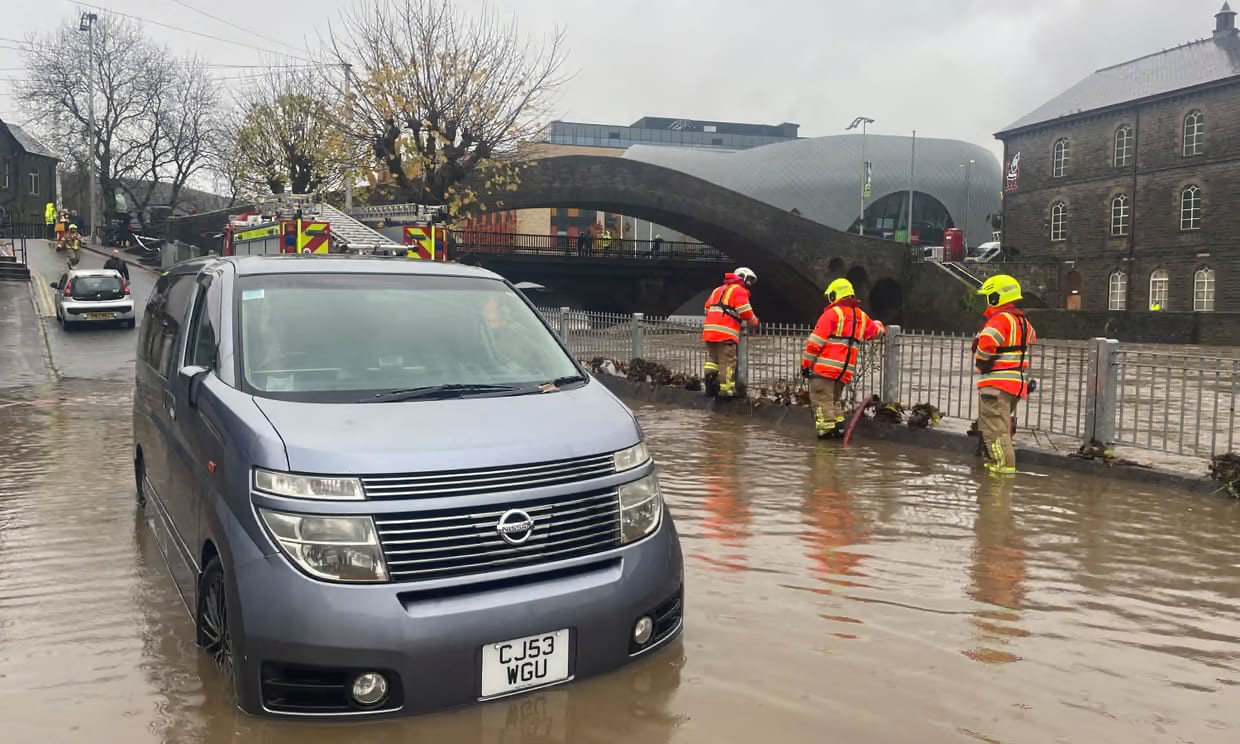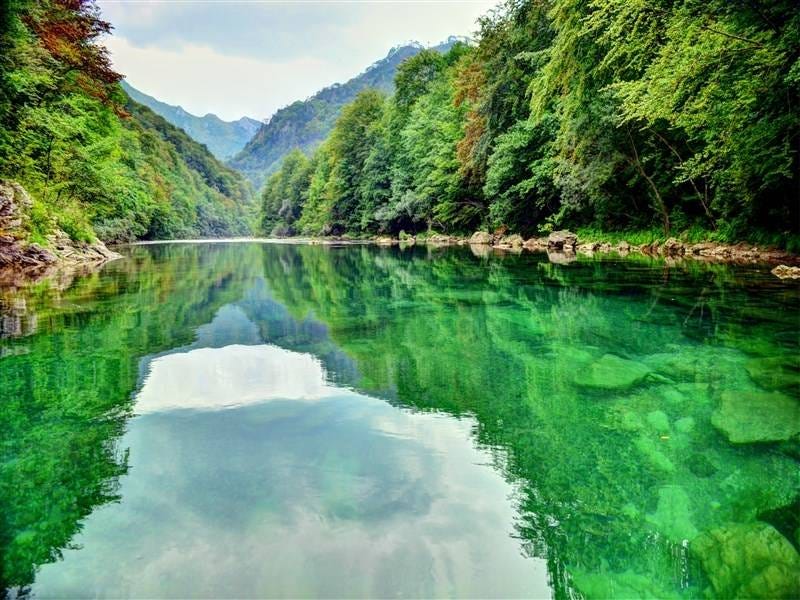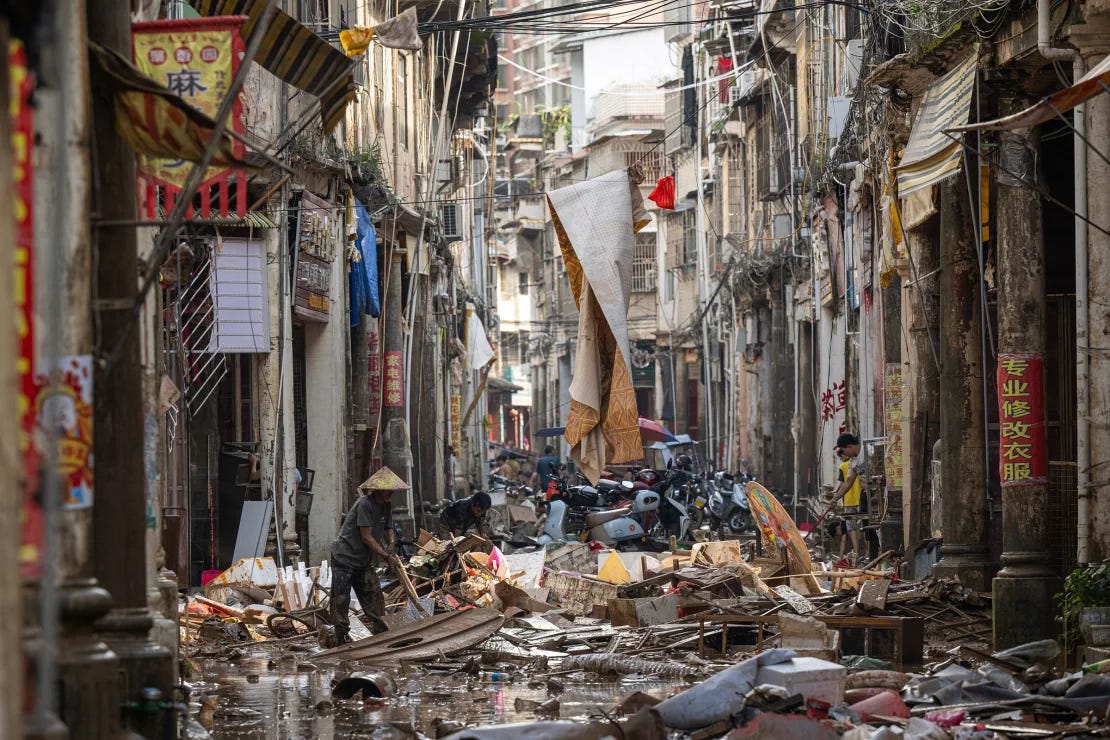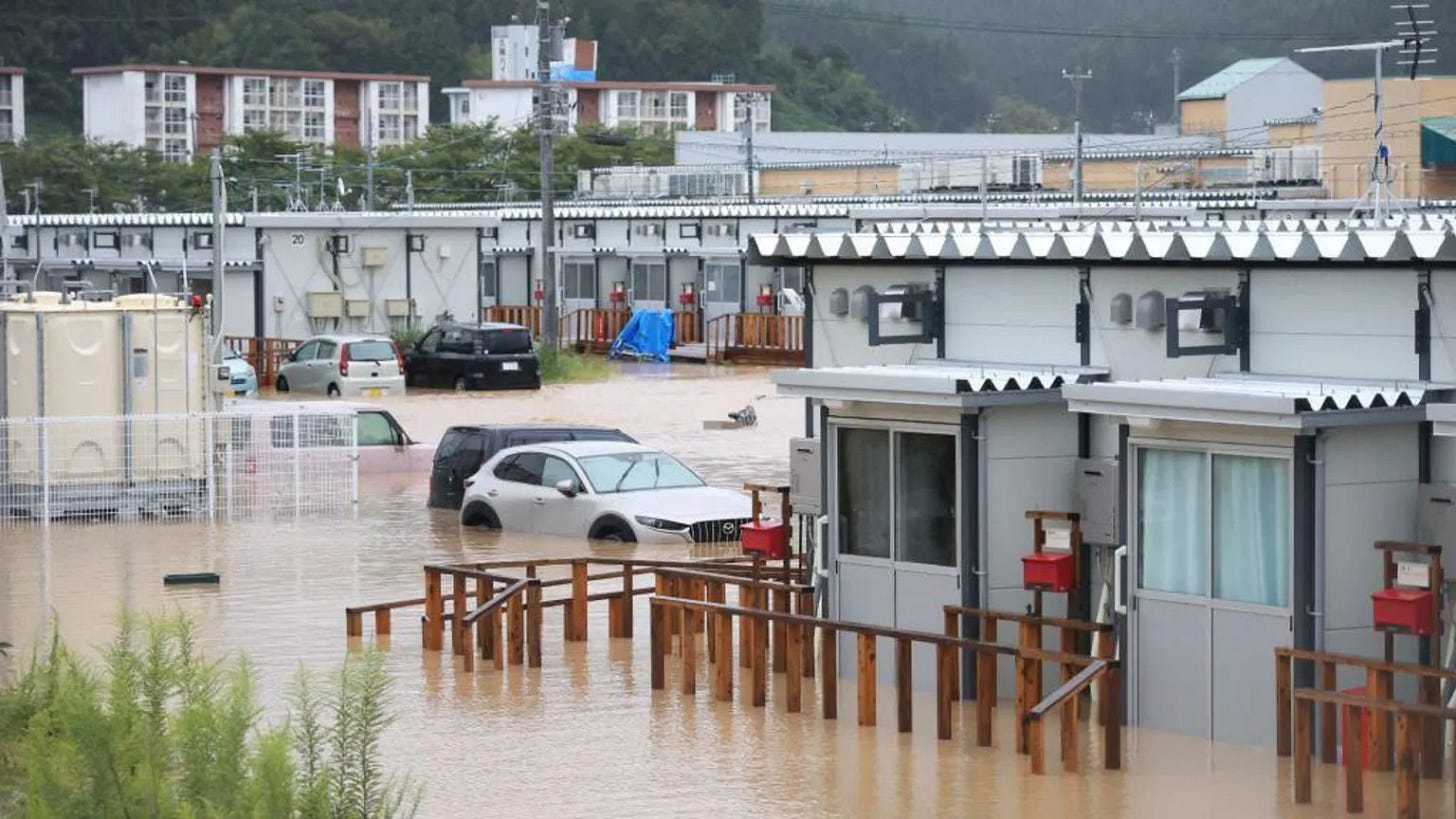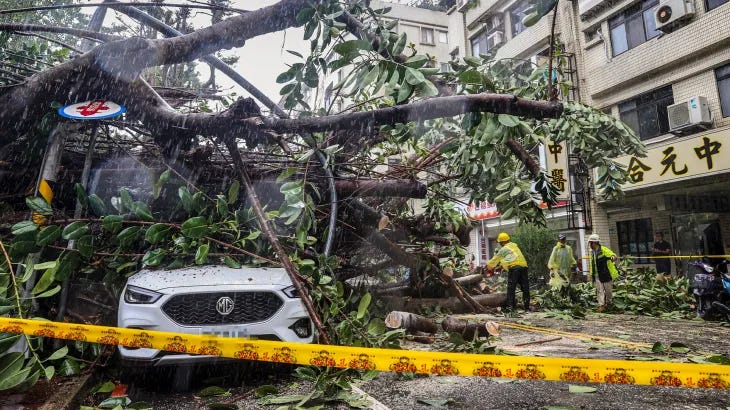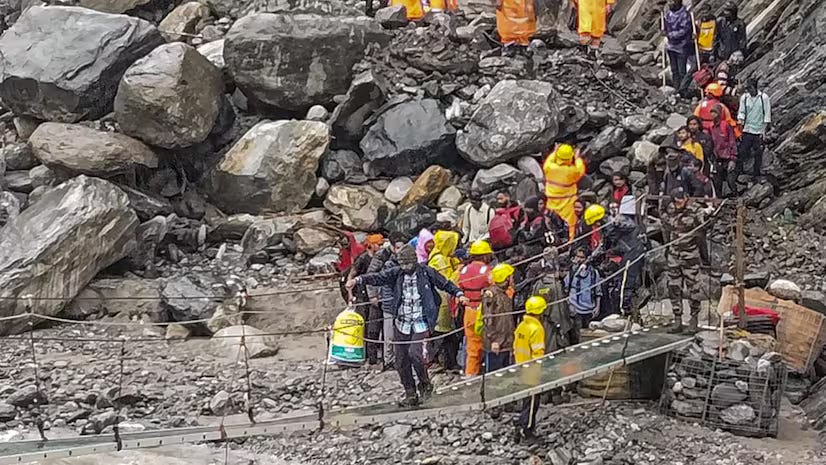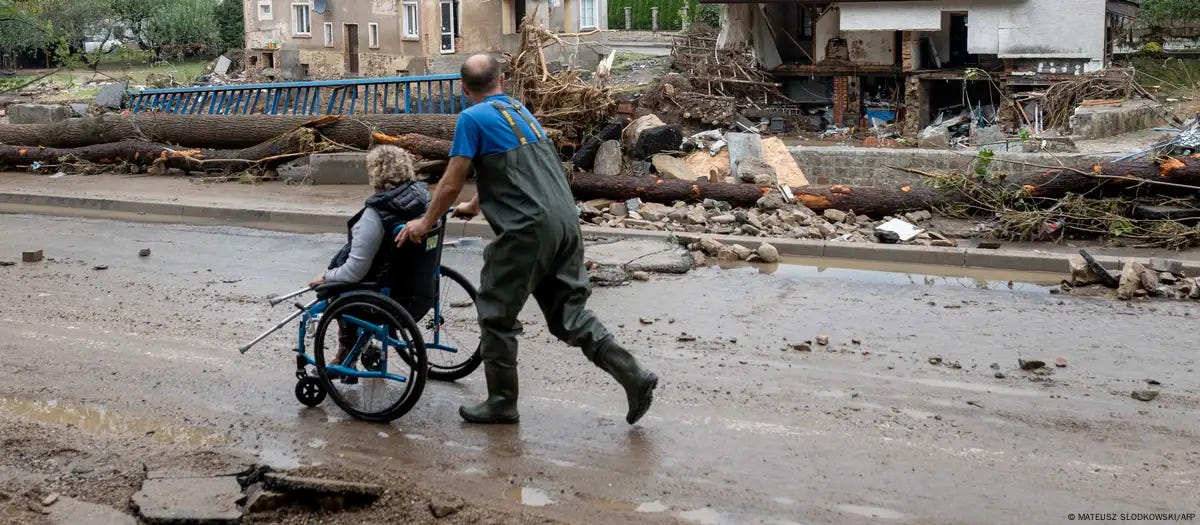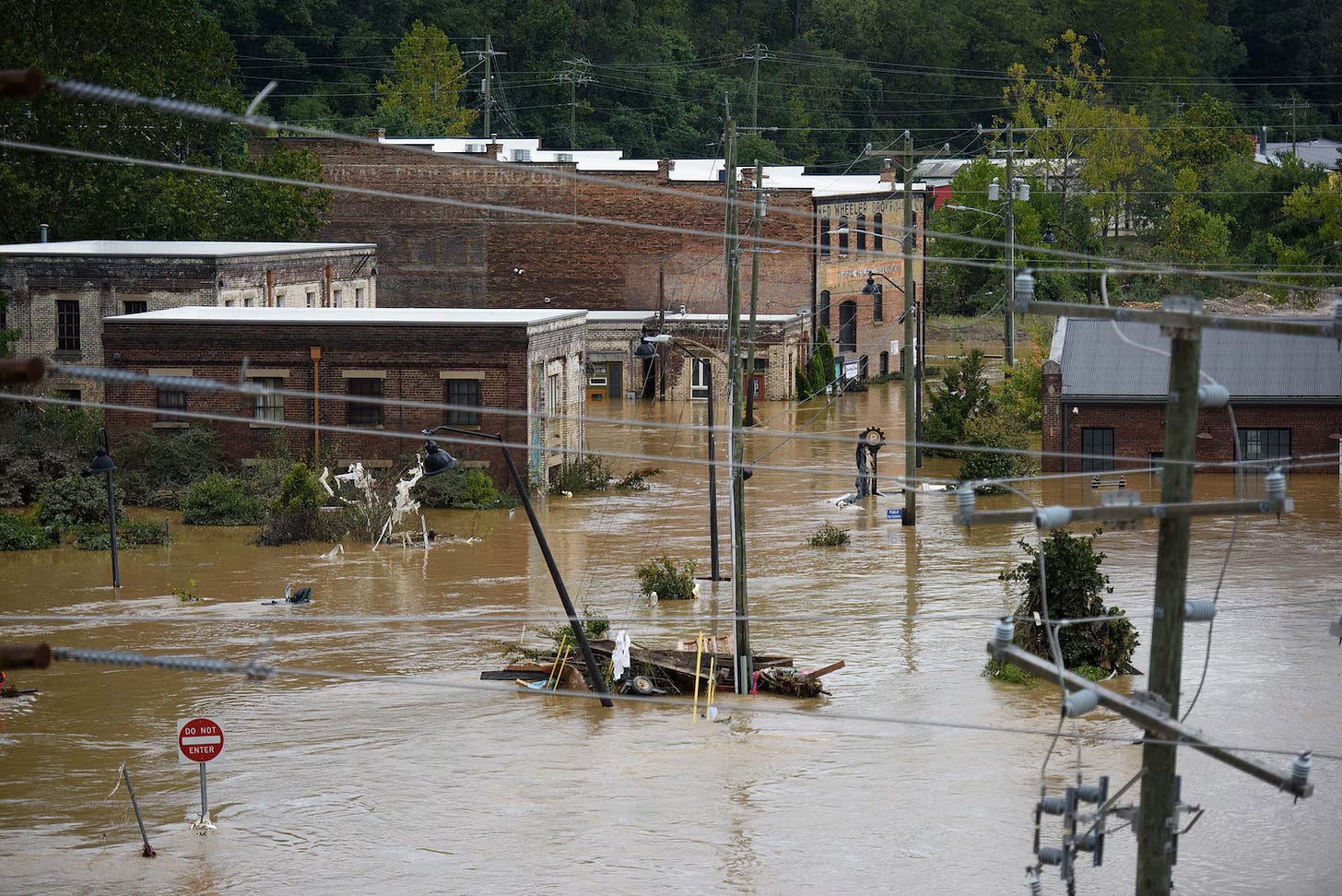It is estimated that there is about 1,386,000,000 cubic kilometers of water on earth. Of this, 1,338,000,000 cubic kilometers of water is in the ocean and over 70% of the planet. Another 24,364,000 cubic Kilometers of water is stored as ice in glaciers. Just to put that in perspective, an Olympic swimming pool holds about 0.000015 cubic kilometers of water.
The planet has been heating up. The temperature difference from taken from the mean in 1900 and 2024 is shown below.
Deviation from mean in 1900
Deviation from mean in 2022
Source: NASA
Source: NASA
Also, the acceleration since 1980 is striking. See what Thatcher and Reagan did to the planet. Policy can have a serious impact!
When you take water and put in on a stove, you would see vapor rising from the surface. We have the same happening on a planetary scale. Eventually, that vapor loses its energy and condenses somewhere.
Have you left a glass of cold water on the table on a hot summer day to watch water droplets condense outside the glass? Water vapor in the air, when cooled, condenses.
Air picks up vapor from the oceans. As the heat in the atmosphere increases, it picks up more and more vapor and when it reaches a colder location it dumps it instantaneously.
There is a cyclone headed for Chennai as I write this.
What a year 2024 has been! The number of countries hit by flooding is incredible. Systems carrying incredible amounts of vapor move towards land and release all of it in one go.
Here is the damage in no particular order —
Valencia - Spain
After
Before
Source: NPR
Emilia-Romagna - Italy
I knew Emilia-Romagna only because the San Marino Grand Prix was renamed Grand Prix d’Emilia-Romagna. I had no idea it referred to the region.
Source: Reuters
Crécy-la-Chapelle - France
If you drive 50 km to the east of Paris, you will cross the Marne river. An area which played a crucial role in the repulsion of the Germans during the First World War. In a region known as Seine-et-Marne rains flooded entire rural communities
Source: Reuters
Wales - UK
A hurricane swept the United Kingdom.
Let that sink in.
Source - Guardian
Jablanica - Bosnia
Yes! Go find it on the map.
Source: EuroNews
That is the Neretva River with a boat floating on it.
Source: Konjic
Neretva on any other day.
Guangdong - China
You would have heard of Guangdong only for all the manufacturing that takes places over there.
Source: CNN
Ishikawa - Japan
You have probably only heard of this name in reference to the causal diagrams introduced by Koaru Ishikawa. His parents may have hailed from the city, he himself was born and raised in Tokyo. On the other end of the island from Tokyo on the West Coast comes the city of Ishikawa.
Source: BBC
Taiwan
Was slammed by the biggest Typhoon in 30 years.
Source: Al Jazeera
India
Source: Business Standard
Published on the 12th August - This single report has the following sub-headlines
Seven-year-old drowns in Delhi
Rajasthan: 16 deaths due to heavy rain
Himachal Pradesh: 288 roads closed, three dead, one missing
Uttar Pradesh: Housing collapse in rain kills two
Haryana: Residents flee villages, agri-fields submerged
Also, this does not include the flooding in the North East which took place in July.
Silesia - Poland
Located in south Poland bordering the Czech Republic and Slovakia, the effects of these floods were also felt in the Czech Republic.
Source: DW
USA
Most recently, Helene swept all the way from Florida right up to North Carolina. That one system alone was able to flood Florida, Georgia, South Carolina and North Carolina. It also managed to get alerts generated in Ohio and Indiana!
Source: ABC News
Apart from this you had Hurricane Francine which took out Louisiana. There was Hurricane Milton and Hurricane Debby. All of them caused a fair bit of destruction and flooding.
In addition to these there was flooding in Austria, Hungary, Luxembourg, Montenegro, Portugal, Slovakia, Ireland, Bangladesh, Kenya, Nepal, and Dubai.
The countries that pose the biggest impediment to real action on climate are the countries that feature in the list above.
In the ancient Indian epic Mahabharata contains a challenge from Krishna which has a line that goes "jab nash manush par chhata hai, pehle vivek mar jaata hai" translates to "When destruction is upon mankind, wisdom is the first to die."
80,000 people flew into Baku in November for something they call COP and spoke nonsense and returned with something they like to call a deal. That deal is non-binding and unenforceable.
In the meantime, the world is drowning.
Recently, Morgan Housel mentioned Sayre's law on his podcast -
In any dispute, the intensity of feeling is inversely proportional to the value of the issues at stake ~ Sayre's Law
This is why political disputes inside academic institutions can get far more vicious and bitter than even wars! The outcome of it would make no difference to the world.
I feel the climate conversation at COP is still reeling in this place where they feel the outcome of it makes no real difference, and hence the intense dispute rather than a willingness to find a solution.



